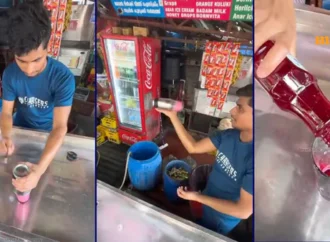Report
On February 7, 2025, the Nagpur bench of the Bombay High Court dismissed a criminal case against Nestlé India Limited officials related to Maggi instant noodles. The Food Safety Officer had filed the case on April 4, 2016, and brought it before the Additional Chief Judicial Magistrate in Nagpur. Justice Urmila Joshi Phalke’s panel cited procedural errors in the food sample testing as the reason for dismissing the case.
Background of the Case
In 2016, Food Safety Officer Kiran Rangaswamy Gedam filed a complaint, alleging that Nestlé violated provisions of the Food Safety and Standards Act (FSS Act), 2006. The complaint stemmed from an inspection conducted on April 30, 2015, at Nestlé’s logistics hub near Nagpur. During the inspection, a food safety team collected samples of Maggi noodles and tastemaker for testing.
Initial Testing and Second Opinion
The state public health lab in Pune initially tested the samples and found that the Maggy noodles met safety standards. However, the Food Safety Officer sought a second opinion and sent the samples to the Referral Food Laboratory in Ghaziabad, Uttar Pradesh. On December 31, 2015, the Ghaziabad lab reported that the noodles failed to meet safety standards, citing excessive dry ash content and inadequate nitrogen levels. This report triggered the criminal case against Nestlé executives.
Court Finds Laboratory Report Legally Invalid
Nestlé’s legal team, led by advocate SV Manohar, argued that the Ghaziabad laboratory lacked accreditation from the National Accreditation Board for Testing and Calibration Laboratories (NABL) when it conducted the testing. The court agreed and ruled that only NABL-accredited laboratories are authorized to perform such tests under Section 43 of the FSS Act. Since the Ghaziabad lab did not receive NABL accreditation until December 15, 2016, the court deemed its report legally invalid.
Issues with Expired Samples and Procedural Shortcomings
The court also noted that the samples had expired by the time the Ghaziabad lab tested them. The Maggi noodles, produced in March 2015, were meant to remain in optimal condition for nine months, making them past their shelf life when tested. Additionally, the bench pointed out procedural flaws, including the failure to issue an official directive for the court to summon the accused.
Conclusion
The Bombay High Court’s ruling emphasizes the importance of procedural accuracy and valid laboratory accreditation in food safety cases. By dismissing the case, the court found the testing process flawed and cleared Nestlé officials of liability for the alleged violations.
Source: India Today
 Food Manifest
Food Manifest 















